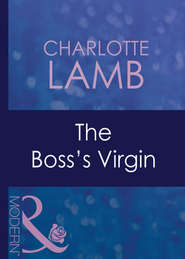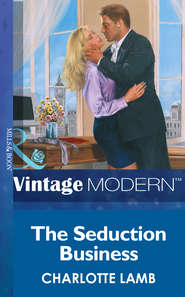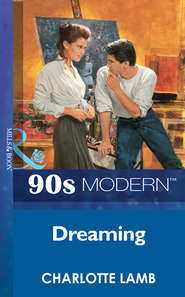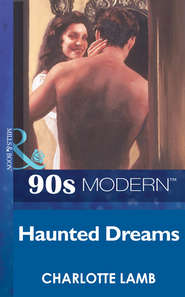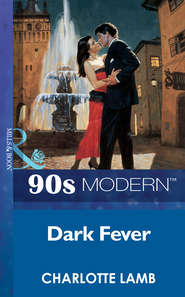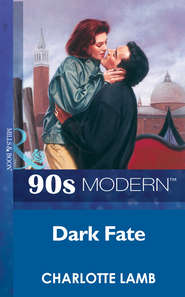По всем вопросам обращайтесь на: info@litportal.ru
(©) 2003-2025.
✖
An Excellent Wife?
Автор
Год написания книги
2018
Настройки чтения
Размер шрифта
Высота строк
Поля
‘Did she?’
‘No, she left it to a cat’s home. In her will she said she had always hated her name, and if my parents hadn’t called me Patience she would have left me her money, but she despised them for saddling an innocent child with a name like that and said money had never helped her enjoy life so I’d be better off without any.’
James laughed. ‘She sounds interesting. And were you?’
‘Was I what?’
‘Better off without her money.’
Sadly she shook her head.
He began cleaning the blood from her forehead, exposing a long but thankfully merely a surface cut. James washed and dried it before covering it with a plaster, then washed the rest of her heart-shaped face and dried it carefully, very aware of her looking up at him, curling dark gold lashes deepening the effect of those eyes. He wished she would stop staring. Uneasiness made him brusque. ‘Head hurting much?’
‘Not at all.’
He held up three fingers. ‘How many fingers can you see?’
‘Three, of course.’
He stared into the centres of the hazel eyes but the pupils seemed normal, neither dilated nor contracted. She smiled, a sweet, warm curve of the mouth that made him flush for some inexplicable reason.
He scowled. No, that wasn’t honest; he knew very well why he had gone red. He had wanted to kiss that warm, wide mouth. He still did; in fact just contemplating the possibility made him dizzy. I’m light-headed, he thought. Am I coming down with some bug? There is flu going around the office. That must be it. Why would I want to kiss her? I don’t even like this girl; she’s a nuisance. She isn’t much to look at, either. Not my type.
She’s too young for you, anyway, a little voice inside his head insisted. Look at her! You can give her a good fifteen years.
Don’t exaggerate! he told himself. Ten, maybe—she’s in her early twenties, not her teens!
She had been watching him, now she looked down, her dark gold lashes stirring against her cheeks. James hoped she hadn’t picked up what was in his mind. He didn’t want her getting any crazy ideas about his intentions. As far as she was concerned, he did not have any!
A moment later Barny slowed, turning a corner. ‘This is the road; where exactly do I find the house, miss?’ He and James both contemplated the road of detached houses in large gardens. It certainly matched the address the girl had given them, but it did not match the girl herself. She didn’t look as if she came from one of these gracious period homes set among trees and shrubs, with curving drives, and lawns.
‘Keep driving and I’ll tell you when to stop,’ Patience said, and obediently Barny kerb-crawled until she said, ‘This is it!’
The car stopped outside and both men stared curiously at the high Victorian house with gabled pink roofs on several levels, twisty red barley sugar chimneys, latticed windows behind which hung pretty chintz curtains. Built of red brick, the woodwork painted apple-green, the design made it took more like a cottage than a large house, a typical design of the last quarter of the nineteenth century. It was set well back from the road in large gardens in which spring was busy breaking out.
A flurry of almond blossom on black boughs, green lawns covered in daisies, yellow trumpets of daffodils and purple crocus showing in naturalised clumps—James hadn’t noticed until now how far spring had progressed. There was an over-civilised tidiness to his own garden that missed out on this lyrical note.
‘The Cedars?’ he queried drily. ‘What happened to them?’
‘There is one, but it’s at the back. There were two when the house was built; the other one blew down in a storm years ago.’ She gave him a defiant glare. ‘And will you stop being sarcastic?’
He didn’t answer. ‘Barny, take us up to the front door.’
Barny swung the car through the green-painted open gates and slowly drove up to the porch which sheltered a verandah and a green front door. He stopped right outside; James got out of the car and turned to help Patience out.
‘Here you are. Goodbye. And I don’t want to see you again.’
She slid down from the car and stumbled over his foot. Quite deliberately, in his opinion, but it would be useless to point that out. Sighing, James caught her before she hit the path and picked her up. She was beginning to feel comfortable in his arms. He would have to watch that. This girl was insidious as ivy; she would be growing all over him soon if he wasn’t careful.
‘Okay, this is the last thing I do,’ he told her coldly. ‘I will carry you to your front door, but I am not going inside.’
He waited for an argument, but didn’t get one, which was ominous in itself. He would dump her on the doorstep and run back to the car and safety.
She looked over his shoulder at Barny, gave him that lovely, sweet smile. ‘Thank you, Barny.’
Suspiciously, James demanded, ‘How do you know his name?’
She turned her hazel eyes up to him. ‘You’ve been calling him that all the way.’
He got the smile this time, and felt his stomach muscles contract disturbingly.
‘You are funny,’ she told him indulgently.
He carried her up the steps on to the verandah and over the painted wooden floor which creaked every step of the way. James forced himself to put her down at the front door.
‘Well, goodbye, Miss Kirby, don’t come to my office again. I have tightened up security procedures; you won’t get in again.’
She gave him a distinctly wicked glance through her long, darkened lashes. ‘I bet I could if I really tried.’
He bet she could, too. His security men were only human.
Sternly, he said, ‘Don’t try. I would hate you to land in jail.’
‘You’d love it,’ she said, mouth curling, pink and teasing. ‘Men love to exercise power. Tyranny is their favourite occupation.’
James refused to argue with her any more. He turned to go back to the car, but at that second the front door swung open and a noisy multitude rushed out of the house and engulfed him in barking dogs with wagging tails and licking tongues, what appeared to be a dozen yelling children in scruffy jeans and sweaters, two old ladies in floral aprons and an old man in dirty boots and dungarees.
James should have fled there and then but he was too slow, too busy looking at the old ladies and wondering if one of them was his mother. He saw no resemblance at all, but then would he, after twenty-five years? Patience had said that his mother was frail and delicate. The description did not fit either of the two women; they looked tough and capable, in spite of both being at least seventy years old.
‘He’s taken our puppy and he’s going to drown it!’ one of the children sobbed. ‘Make him give it back.’
Patience was greeting dogs, her small hands busy on their heads, impeded by their licking tongues. ‘What puppy?’ she asked the tallest child, a boy with a mop of familiar red hair and eyes like melting toffee.
The old man answered her gruffly. ‘They found it and brought it home with them. As if there weren’t enough dogs underfoot without bringing puppies back here!’
‘I found it,’ the smallest child said, a little boy with spiky ginger hair. ‘I bringed it home in my spaceship.’
‘Spaceship?’ asked Patience.
‘Her wheelbarrow,’ interpreted the eldest boy.
Her wheelbarrow? That was a girl?
Patience smiled down at the smallest child, ruffling the hedgehog-like hair.
‘Where did you find it, Emmy? It must belong to someone! They’ll be worried about it; we must let them know the puppy is safe.’
‘No good,’ the old man grunted. “They don’t want it back. They’re not daft; they jumped at the chance to get rid of it.’






